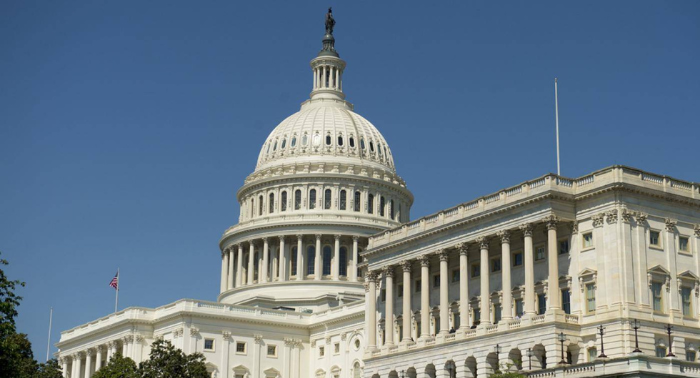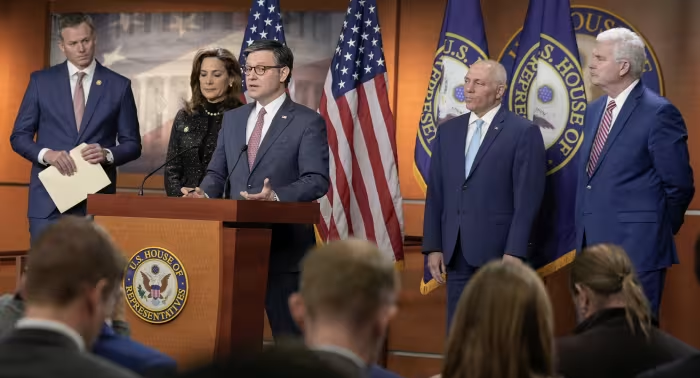On Thursday, Congress took action to prevent a potentially harmful government shutdown in an election year by approving a temporary measure to extend funding for key federal agencies beyond the approaching weekend deadline.
Despite being five months into the fiscal year, Congress has yet to pass the 12 annual spending bills constituting the federal budget, facing deadlines of midnight on Friday and March 8 to ensure continuous operations.
Both the Republican-led House and the Democratic Senate agreed to a short-term “continuing resolution,” pushing the deadline for the first six bills to March 8 and setting March 22 as the new cut-off for the remaining six.
The extension was crucial as funds for crucial areas such as agriculture, science, veterans’ programs, transportation, and housing were set to expire imminently, potentially impacting vital functions like food safety inspections and air traffic controllers’ salaries.
A complete shutdown loomed just a week later, following President Joe Biden’s State of the Union address on March 7, threatening operations for defense, border security, Congress, and various other departments and agencies.
However, this marks the fourth stopgap funding measure approved by Congress, and the third under House Speaker Mike Johnson’s leadership, providing lawmakers with only a brief reprieve to realign their efforts.
Johnson has faced challenges in managing a narrow majority, navigating between the demands of his conservative base and more moderate Republicans.
While nearly all Democrats supported the continuing resolution, 97 Republicans voted against it in the House. Nevertheless, it passed the Senate with a 77-13 vote and is set to reach Biden’s desk in time to sustain government functions.
Moderates view shutdowns as politically detrimental and a risk to Republican prospects in the upcoming elections, but conservative members, particularly those in safe seats, are inclined toward confrontation.
Conservatives have advocated for measures such as cutting Homeland Security Secretary Alejandro Mayorkas’s salary, blocking travel expenses for military personnel seeking abortions, and defunding parts of Biden’s climate agenda—stances opposed by Democrats.
Last year, Biden brokered a deal with Republicans, stipulating significant automatic spending cuts if full-year spending bills are not passed by April.
The House Freedom Caucus, comprising 40 hard-right members, has expressed readiness for these cuts, rejecting compromises on their priorities.
“We can’t let the swamp dictate the terms,” remarked Texas congressman Chip Roy.
Biden convened a rare Oval Office meeting with congressional leaders on Tuesday to spur progress on the budget and to address the impasse hindering crucial aid for Ukraine, compounded by Republican infighting.
Senate Majority Leader Chuck Schumer emphasized the need for bipartisan cooperation, urging Republicans to acknowledge the reality of divided government and to work together, sidelining the extremes of the hard right, to achieve legislative goals.




